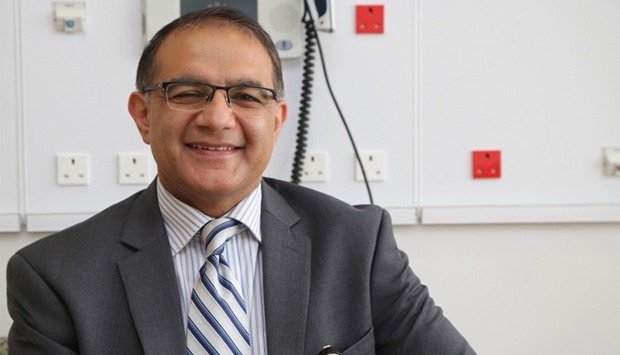Sidra Medical and Research Center (Sidra) will accept ASD (Autism Spectrum Disorder) referrals from schools, complementing the recently launched Qatar Autism Plan.
"Such a referral is the first of its kind in Qatar," Dr Mohamed Waqar Azeem, chair of the Department of Psychiatry at Sidra and the chair of the National Autism Working Group the country, told Gulf Times while elaborating on the organisation’s approach to supporting children with ASD.
“This referral service from schools is unique to Qatar. Our teams have been working closely with different schools across Qatar to provide education, guidance and to help them with children who are in need of evaluation and treatment interventions,” explained Dr Azeem.
“Our recommendation and approach for the school teachers is to use the SPELL (Structure, Positive Approaches, Empathy, Low Arousal and Links) framework which recognises strengths of the child and emphasises that interventions should be based on child’s life and various components of the programme,” continued Dr. Azeem.
The official pointed out that Sidra has adopted a family centred approach to care for children suffering from ASD.
“Sidra’s approach to caring for children with ASD is to provide care for the whole family. By helping parents to understand how the child functions, and why they behave in a particular way, we are teaching parents how to take care of the child in the right way. This can prevent many unavoidable challenges for the parents and the child. If the child is happy and relaxed, this can help them to improve self-care and social skills.
“We recently partnered with our dynamic health promotion team at Sidra to engage with families and children visiting the Sidra Outpatient Clinic. The campaign was very successful as we fielded a lot of inquiries and interest from the families and visitors. Our focus for the campaign was to help educate visitors to Sidra about the importance of identifying autism at an early age.”
According to the official, there is definitely an increased level of awareness about ASD in the country. “Families are more accepting of the condition and are becoming more open about it. One reason behind this change is that they see the need for intervention and are seeking services rather than shying away and hiding individuals with Autism,” he maintained.
Dr Azeem felt that the national autism plan can be a model for other countries – particularly the GCC. “In fact, I am citing some key concepts of the Qatar National Autism Plan at a talk I am about to give in Bhutan this week, at the International Conference on Autism and Neurodevelopmental Disorders,” he added.


